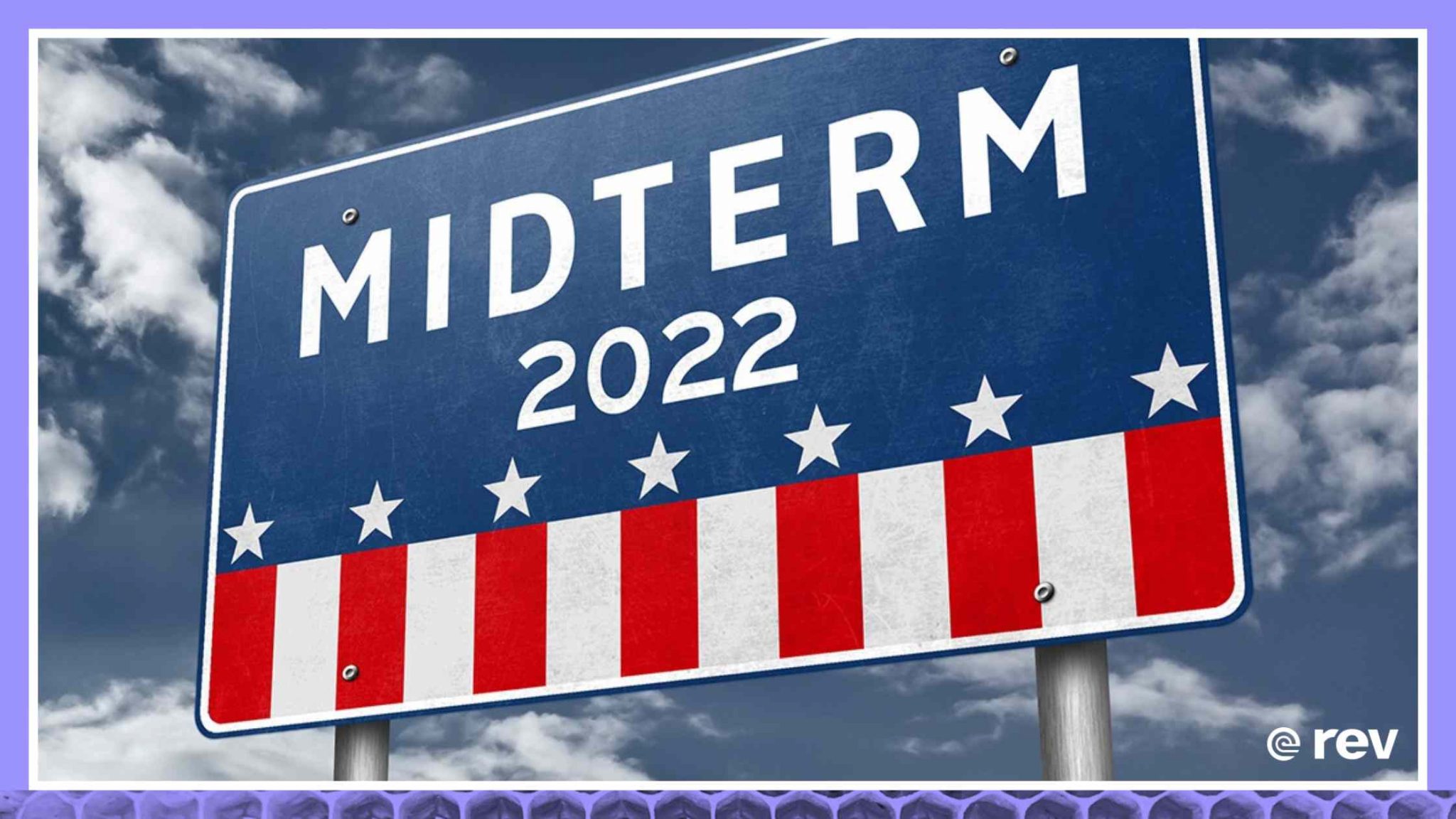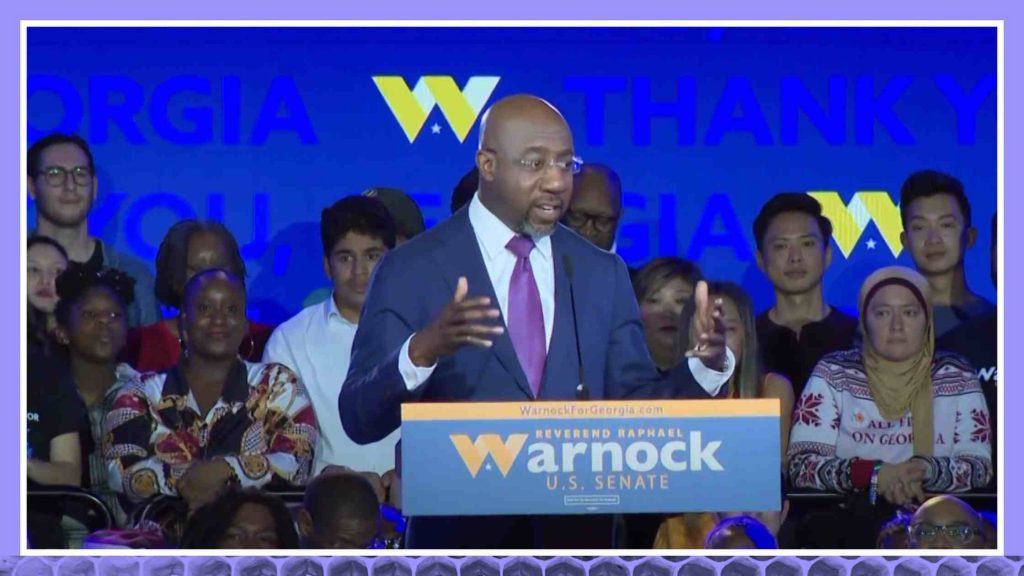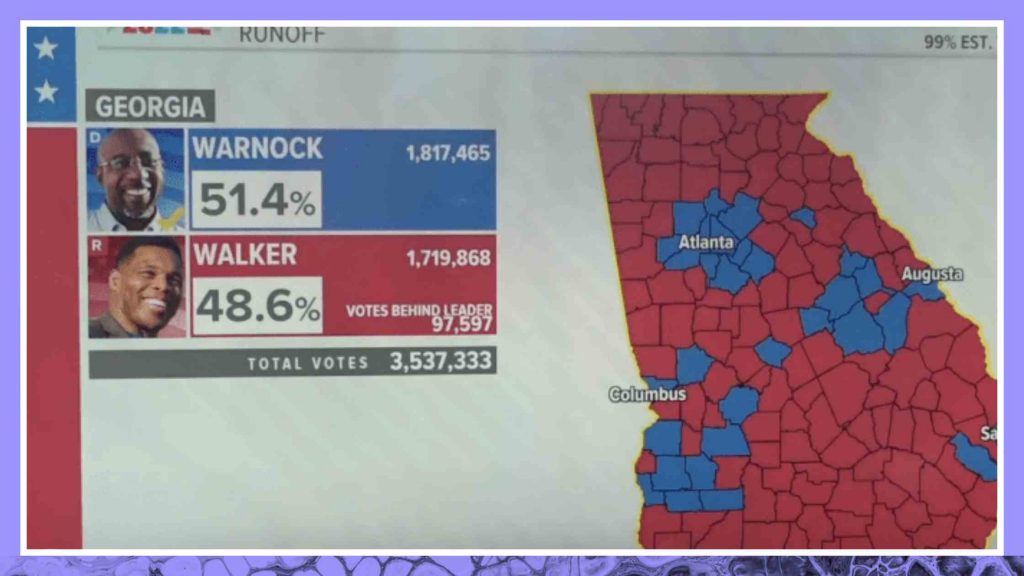Nov 10, 2022
Democratic and Republican strategists on what worked and what didn’t in midterm campaigns Transcript

Democratic strategist Guy Cecil and Republican strategist Sarah Longwell joined Judy Woodruff to discuss what worked and what didn’t for each of the parties. Read the transcript here.
Transcribe Your Own Content
Try Rev and save time transcribing, captioning, and subtitling.
Judy Woodruff (00:00):
And we know that last night brought a host of surprises, including, as we’ve been reporting, the Democrats’ ability to minimize their expected losses across the board. As we’ve been discussing here, to talk about what worked and what didn’t for each of the parties, I’m joined by Democratic strategist Guy Cecil, and Sarah Longwell, a Republican strategist. She’s also the founder of the Republican Accountability Project. Welcome back to the NewsHour to both of you guys. Cecil, I’m going to start with you. How did Democrats do it? I mean, there was this sense going in that there would be a red wave, that it’d be a good night for Republicans. They’re not off the table, they could still take the House, and the Senate for that matter, but how did Democrats do as well as they did?
Guy Cecil (00:42):
Well, I think there were warning signs for Republicans that Democrats ended up taking advantage of. And when I say warning signs, it was just last year that Mitch McConnell failed to recruit Republican governors in Arizona and New Hampshire and Maryland, all three of whom would’ve transformed the map for the Republican Party. And then on top of that, they ended up with the most extreme candidates in many of these races, similar to what happened in gubernatorial races around the country. And I think Amy actually hit the nail on the head. Republicans were actually, or Democrats rather, were actually able to make this a choice between a Democratic Party that was actually working to try to solve America’s greatest problems versus extreme Republicans running for the House, for the Senate, and for governor’s races around the country, who were more focused on election denialism and restricting the right of a woman to choose, and frankly, didn’t offer any compelling solutions to how they would actually solve the very problems that they were criticizing Democrats for.
Judy Woodruff (01:48):
So Sarah Longwell, if that’s what Democrats were able to do, to a degree, what is it that Republicans were not able to do to have a better night last night?
Sarah Longwell (02:00):
Yeah, well, look, it really all started with the Republican primaries, where Donald Trump was able to bring his base together to push across a bunch of really extreme candidates, who ultimately became the nominees and then were really poison for swing voters. I talk to swing voters in my focus groups all the time, and despite the fact that they were frustrated with Biden, despite the fact that they cared about the economy, when it came down to vote choice, when they had to choose between a guy like Josh Shapiro or a guy like Doug Mastriano, who was at January 6th, who didn’t believe in any exceptions for rape, incest and the life of the mother, you see a guy like Josh Shapiro winning by 14 points, absolute blowouts. And I got to say, it was a really good night for democracy. The thing that had been keeping me up at night was the idea that these governor’s races and Secretary of State races could get swept up in this red wave. And you’d have a bunch of people certifying elections in 2024 who didn’t believe in certifying the actual results.
(03:02)
But in Wisconsin, in Pennsylvania, in Michigan, there were very good nights where the Democrats won and they kept out these election deniers, but it was a very bad night for Donald Trump and his candidates that he had put forward.
Judy Woodruff (03:17):
So Guy Cecil, so one of the things we’ve noticed is, again, there was a lot of money poured in to these races. What did you see there? How did that make a difference for Democrats this time, do you think?
Guy Cecil (03:28):
Well, I think if you want to know how candidates think they can win elections, you look at how they spend their money. And when you look at how Republicans were spending their money online, for example, most of the money they were spending wasn’t actually focused on abortion. It was focused on crime, policing, and then a smattering of economic messages. Whereas Democrats were focused on the economy, on healthcare, on abortion, on three issues that the public was telling us they really cared about. And I think Democrats were able to stay competitive not because of outside money, but frankly, because our candidates, Senate candidates, gubernatorial candidates, House candidates, secretaries of state candidates, were able to raise significantly larger amounts of grassroots money online, which really powered a lot of the campaign, particularly early on in the cycle.
Judy Woodruff (04:19):
Sarah, do you see money making a difference? I mean, Democrats did raise a lot of money and certainly so did Republicans, especially the so-called outside groups.
Sarah Longwell (04:29):
Oh, money absolutely made a difference. One of the things that strikes me in the focus groups is how much people’s opinions are shaped by the television advertisements. People will tell you that they hate the TV advertisements, they’re so sick of hearing about them, and yet, the early money that Democrats spent defining the Republican candidates as very extreme on abortion, when I would do the focus groups in the beginning, and I would ask, “How do you think things are going in the country?” Like I said, they’d be frustrated, they’d talk about crime, they’d talk about the economy, they talk about inflation. But when it came to vote choice, in a Whitmer versus Tudor Dixon, like in Michigan for example, everybody knew that Tudor Dixon had said that if a young woman was raped, she should still have to carry the baby to term. Democrats did a great job, they spent a lot of money early, they defined candidates on these issues.
(05:18)
And by the time it came down to vote choice in this election, the swing voters knew how extreme these Republican candidates were. And ultimately, that made a ton of difference. I know people like to talk about money in politics being a bad thing, but this is, running TV, running radio, billboards, that is how you persuade. And there was a lot of persuasion that happened in this election.
Judy Woodruff (05:41):
So guys, Cecil, back on this question, I think both of you have raised about messaging from each party. Do we come away saying, “Okay, these are the messages that they should have talked about, and are they messages that are going to translate into a productive Congress in the next two years?”
Guy Cecil (06:02):
Well, I think the only thing that will make Congress more productive is if the Republican Party deals with the extremist elements. I mean, we already have extreme members of the Republican caucus today, who are threatening with all sorts of threats about how they’re going to disrupt the next Congress. I mean, the reality is, there are Democrats like Michael Bennett who are willing to work across the aisle. We’ve seen Raphael Warnock work with Ted Cruz of all people to try to solve the country’s problems. But we have an extreme element of the Republican Party, particularly in the House. And the reality is, until the Republican Party deals with that element, it will be almost impossible for Democrats and Republicans to work constructively to solve the biggest problems that our country faces, despite the fact that President Biden has tried over and over again to do just that.
Judy Woodruff (06:52):
And Sarah, I mean, how does somebody like you, who cares about the Republican Party, see Republicans dealing with that in the next couple of years?
Sarah Longwell (07:04):
Well, as somebody who’s been extremely alarmed to watch the Republican Party’s descent into conspiracy theories and election denialism, I’m frankly thrilled to see such a repudiation of a lot of the election deniers in these key swing states. That being said, the party continues to radicalize, and there are a lot of election deniers that won last night, they’re just all in safer areas. And so I remain deeply concerned about the state of the Republican Party, but I do think it’s good, it’s a good early green shoot sign that Donald Trump didn’t get his way. And it would be nice to see the Republican Party, and I think you’re seeing a little bit of this, start to say, “You know what? We cannot let this guy back in.” Although the Republican Party has tried this before, and Donald Trump has always found a way, he has a very tight grip on his base, and that base is quite large.
(08:03)
And you’ve got to deliver sustained electoral defeats, that is the only way the Republican Party ultimately reforms itself. And also, you got to beat Donald Trump, he’s got to lose in a Republican primary, or he is going to have to lose again in a general election if he runs again. It’s the only way to ever bring the Republican Party back to some kind of sanity.
Judy Woodruff (08:25):
Sarah Longwell, Guy Cecil, we so appreciate the inspired and wise observations of both of you. Thank you very much.
Guy Cecil (08:35):
Thank you.
Transcribe Your Own Content
Try Rev and save time transcribing, captioning, and subtitling.






